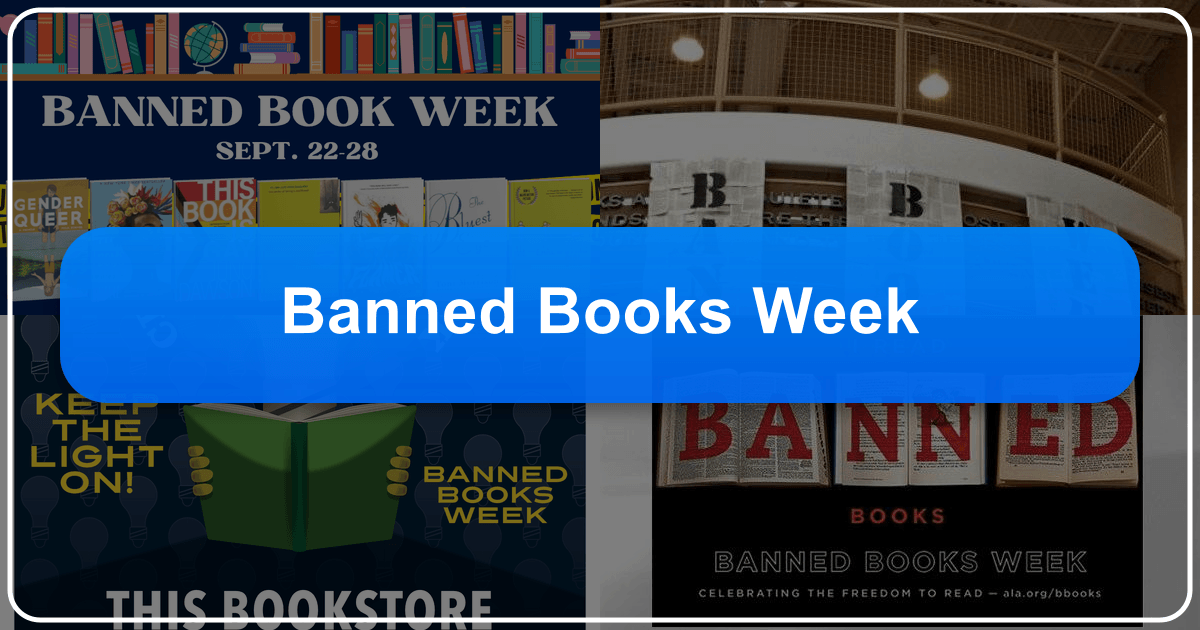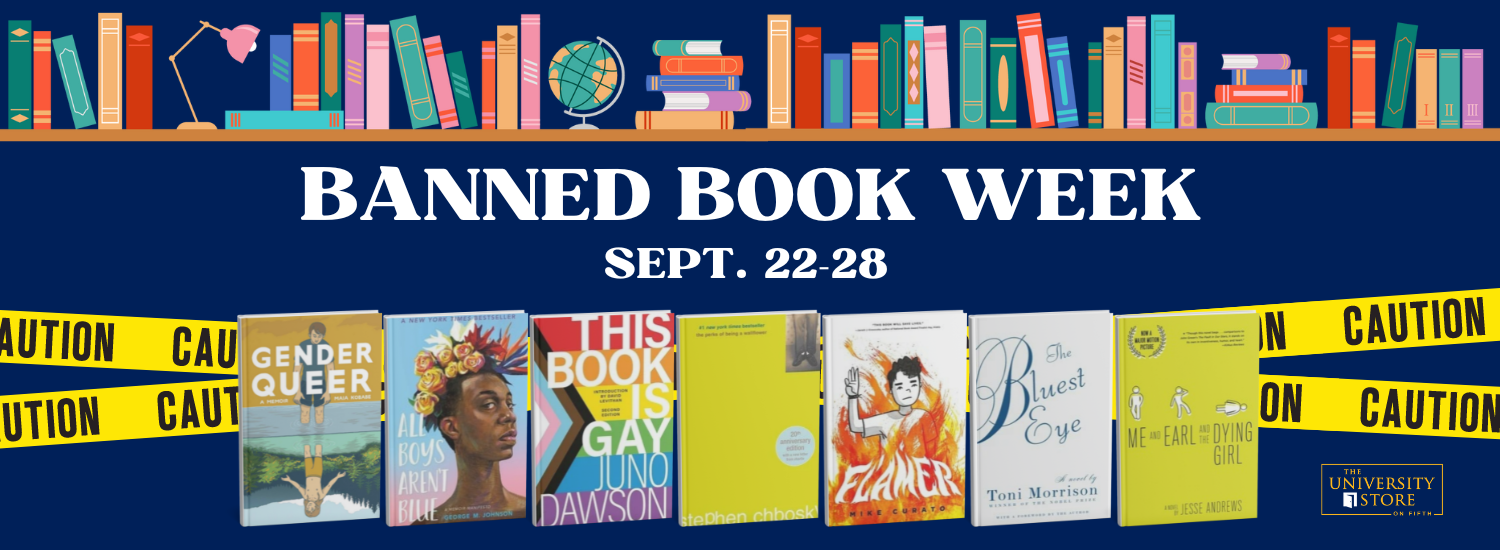Banned Books Week: A Celebration of Free Expression and Intellectual Freedom

Banned Books Week, an annual event celebrated in the United States and internationally, serves as a powerful reminder of the vital importance of intellectual freedom and the right to access information without censorship. This week, observed annually during the last week of September, is not about condoning harmful or offensive content, but rather about protecting the fundamental principle that individuals should have the freedom to read and explore diverse perspectives without fear of government or societal restrictions. The very act of banning books, whether motivated by political, religious, or social concerns, undermines the cornerstone of a democratic and informed society. Lbibinders.org, a comprehensive resource for book lovers, authors, and educators, stands firmly in support of Banned Books Week and the principles it upholds. This article will explore the various facets of this important event, examining the reasons behind book bans, the impact on readers and society, and the ongoing fight to ensure access to a wide range of literary works.
The Genres and Authors Targeted by Censorship

The books targeted for banning span a vast range of genres, reflecting the diverse tastes and interests of readers. Classics, often considered pillars of literature, frequently find themselves on the banned list, highlighting the ever-evolving nature of societal standards and interpretations. Bestsellers, reflecting current cultural trends and discussions, often become targets due to their widespread influence and potential to challenge existing norms. New releases, representing fresh voices and perspectives, also face censorship, indicating an attempt to stifle emerging ideas and narratives. Lbibinders.org provides a comprehensive catalog of books, allowing users to explore diverse genres, from classic literature to contemporary bestsellers, and discover the breadth and richness of literary expression. Its detailed book reviews, accessible through the website, offer insightful analysis and help readers make informed choices about the books they read.

The authors whose works are banned are equally diverse, representing a wide spectrum of backgrounds, perspectives, and writing styles. Their biographies, often detailed on Lbibinders.org, reveal the personal experiences and influences that shaped their writing. Examining the authors’ inspirations and famous works sheds light on the themes and ideas that trigger censorship. The reasons for banning an author’s work often stem from anxieties surrounding challenging societal norms, expressing controversial opinions, or presenting perspectives that deviate from dominant ideologies. Lbibinders.org allows users to access author biographies, providing a deeper understanding of the writers and their work, combating the silencing effect of censorship.

Understanding the Motives Behind Book Bans
The motivations behind banning books are complex and often intertwined. Frequently, books are banned because they contain content deemed sexually explicit, violent, or offensive. These bans often stem from concerns about protecting children and upholding moral standards, although the criteria for what constitutes “harmful” content can be subjective and vary widely across different communities and cultures. Other books are banned due to their political or religious content, reflecting attempts to suppress dissenting opinions or protect prevailing ideologies. Such censorship can stifle critical thinking and limit the exposure of individuals to diverse viewpoints, ultimately hindering intellectual growth and social progress.
Furthermore, books are sometimes banned due to their portrayal of LGBTQ+ themes or characters. These bans reflect societal anxieties about sexual orientation and gender identity, often stemming from deeply rooted prejudices and misconceptions. Similarly, books dealing with racial or ethnic issues can be targeted, reflecting attempts to maintain existing power structures or avoid uncomfortable conversations about inequality and social justice. Examining the reasons behind these bans reveals a deeper understanding of societal biases and the need for greater tolerance and inclusivity. Lbibinders.org provides resources that help readers critically evaluate these biases and understand the historical and cultural contexts surrounding these challenges.
The Educational Value and Cultural Impact of Banned Books
Despite the attempts to suppress them, banned books often carry significant educational value and cultural impact. Reading summaries available on Lbibinders.org can provide a quick overview of the book’s plot, but it is the deeper exploration of the themes and ideas within the text that fosters intellectual growth and critical thinking. Many banned books offer valuable life lessons, prompting reflection on complex social issues, personal growth, and the human condition. These lessons, often learned through engaging narratives and relatable characters, can have a lasting impact on readers’ understanding of themselves and the world around them. By promoting critical analysis and discussion, banned books challenge readers to grapple with complex concepts and form their own informed opinions.
The cultural impact of banned books is equally profound. These books often become catalysts for social change, sparking important conversations and challenging entrenched power structures. Adaptations of banned books, ranging from film and theatre productions to musical compositions, demonstrate the enduring appeal and relevance of these works. Furthermore, the awards and recognition bestowed upon some banned books serve as powerful testaments to their literary merit and enduring significance. Lbibinders.org helps to trace the cultural impact of these books, providing access to information on film adaptations, awards received, and community discussions surrounding their significance.
The Role of Libraries in Protecting Intellectual Freedom
Libraries, both public and digital, play a crucial role in protecting intellectual freedom and ensuring access to a wide range of literary works. Public libraries, pillars of community life, often face direct challenges from those who seek to ban books from their shelves. Digital libraries offer alternative avenues for accessing books, particularly valuable in areas where access to physical libraries is limited. Rare collections and archives housed in specialized libraries preserve historically significant works and provide invaluable resources for researchers and scholars. Lbibinders.org acknowledges the vital role that libraries play and offers resources to help users locate and access books from diverse sources, emphasizing the importance of preserving and celebrating literature.
By providing access to a diverse range of materials, libraries foster intellectual exploration and critical thinking. They serve as safe spaces for individuals to engage with different perspectives, even those that may challenge their own beliefs. The commitment of libraries to preserving intellectual freedom is paramount in safeguarding the right to read and learn without censorship. Their role in preserving rare collections and archives ensures that these works are accessible to future generations, ensuring that history and diverse viewpoints are not lost to time or censorship.
The Ongoing Fight for Intellectual Freedom and Access to Information
The fight for intellectual freedom is an ongoing battle, requiring vigilance and active participation from individuals, organizations, and communities. Banned Books Week serves as a critical focal point for this fight, raising awareness and encouraging engagement with the issues surrounding censorship. Lbibinders.org actively contributes to this fight by providing readily accessible information about banned books, highlighting the importance of intellectual freedom, and promoting discussions around the complexities of censorship. By encouraging readers to explore diverse perspectives and engage in critical analysis, Lbibinders.org helps to foster a more informed and tolerant society.
The fight for intellectual freedom is not merely about access to specific books; it is about protecting the fundamental right to read and learn without interference from external forces. It is a fight for open dialogue, critical thinking, and the pursuit of knowledge without fear of reprisal. By actively participating in discussions, advocating for intellectual freedom, and celebrating the power of literature, we can ensure that the voices of authors and readers are heard and that the freedom to read remains a cherished right for generations to come. Lbibinders.org invites all readers and supporters of intellectual freedom to join the conversation and celebrate the power of unrestricted access to information.